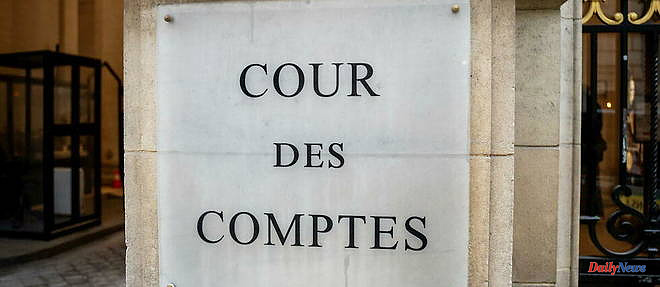The Court of Auditors on Thursday urged the government to initiate a "resolute recovery" of public finances damaged by the energy crisis, curbing an "unambitious" trajectory of debt reduction which risks on the contrary to widen, according to her. After the tens of billions of euros spent to help households and businesses cope with the health crisis, the year 2022 was to mark the end of the expensive "whatever the cost".
It was without counting on the war in Ukraine and the surge in energy prices which led the government to get its hands on the wallet. "The energy crisis has prolonged the period of massive public support for the economy and households, synonymous with a still very high public deficit and debt", notes the Court of Auditors in its thick annual report, submitted to President Emmanuel Macron before his presentation Friday.
"It is therefore essential to put in place a strategy that combines resolute recovery of public finances and recovery of medium-term growth potential", she adds, pointing to tax revenues that are set to be less dynamic in 2023 while expenditure public continues to grow.
If the price shield on electricity and gas, rebates at the pump or even the energy check enabled France to post the lowest inflation rate in the euro zone last year, these measures represent a net cost of nearly 43 billion euros over two years, to which are added another 50 billion in health expenditure and economic recovery, she notes.
All against a background of slowing growth. After 2.6% in 2022, the executive is counting on a gross domestic product (GDP) up 1% this year, a more optimistic forecast than those of the IMF or the Banque de France.
With a public deficit at 5% of GDP and a public debt above 111%, "the situation of France's public finances will thus remain in 2023 among the most degraded in the euro zone", far from the objectives set by the European authorities, tackle the Sages of rue Cambon. However, the trajectory to reduce them by 2027, set in a public finance programming bill rejected by Parliament, is "unambitious", they lament.
By this time, the government intends to reduce the deficit below the European limit of 3% of GDP, i.e. two years or more after the other main economies of the euro zone, while the debt is expected to be more or less at the same level ( 110.9%).
These targets are also at risk of being derailed, as the assumptions used to achieve them are considered "too optimistic", whether in terms of growth, the evolution of interest rates or public spending. "If one of these assumptions were to prove too favorable, the objective of inflection of the debt ratio by 2027 would not be achieved", warns the Court. Worse, the debt would widen, up to 115% of GDP according to her.
The Court considers the annual review of public expenditure as announced in January by the government insufficient to identify sources of savings, such approaches having shown "limited" effectiveness in the past.
Wishing to be associated with such an approach, it calls for "a profound change of culture" by showing "selectivity in spending as well as in discretionary reductions in compulsory levies". France has one of the highest levels of public spending. highest in the euro area (57.7% of GDP in 2022 and 56.9% in 2023).
Highlighting the overhaul of unemployment insurance and its pension reform project, as well as now the increased targeting of support on the most modest, the government assures that "the pace of adjustment adopted makes it possible to initiate normalization at the Resolute and Credible Public Accounts,” in its integrated response to the report. The Court also underlines the need for France to adopt a multi-annual public finance planning law, the absence of which, in its view, poses a risk to the collection of European funds, expected to be 12.7 billion in 2023. .












